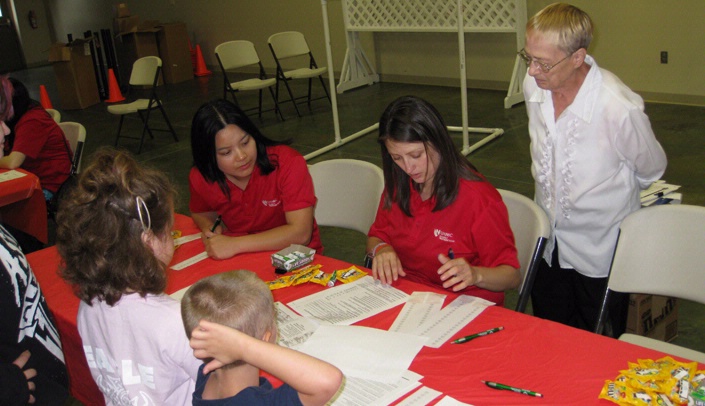Natural disasters and disease outbreaks stretch resources available to local health departments, sometimes quite thin. That’s why these departments are always looking for well-educated public health volunteers.
To meet that need, about 30 students in the College of Public Health organized a Student Response Team earlier this year.
Stephanie Nelson, a joint M.P.H. health administration and M.B.A. degree student at UNMC and the University of Nebraska at Omaha, was elected president of the group.
“We aim to train students as potential responders in an emergency or disaster — whether through social media monitoring, mass drug dispensing or helping local health departments with the epidemiological work in a disease outbreak,” she said.
The team also provides hands-on experience for students in emergency preparedness and outbreak response, said faculty advisor Sharon Medcalf, Ph.D., assistant professor of health promotion, social and behavioral health.
“UNMC’s Student Response Team capabilities provide a win-win for everyone. Requesting agencies gain much needed manpower in an emergency and students gain experience in the field,” she said.
So far, the team has received training in epidemiology outbreak response from the emergency response coordinator for the Douglas County Health Department.
The Cities Readiness Initiative coordinator at UNMC and the Nebraska Department of Health and Human Services, with the Sarpy/Cass Department of Health and Wellness, aided the students on points of dispensing — giving out medications while keeping accurate records and being aware of necessary paperwork.
A third area of training will be provided in social media surveillance from the American Red Cross. A digital response team would monitor social media during a natural disaster to see who needs help. This is a pilot project that requires all the students on the team to become volunteers with the Red Cross.
“Students are excited about this,” Nelson said. “This provides us real world experience, training and connections. Now a couple of students want to do their capstone projects in emergency preparedness. This is opening horizons for people.”
College of Public Health Dean Ali S. Khan, M.D., M.P.H., said the hands-on field experience with outbreak management is invaluable. “This will help them learn to be expert public health practitioners and enhance the student experience. These are the types of public health professionals we need to help make Nebraska the healthiest state in the union by 2020.”
